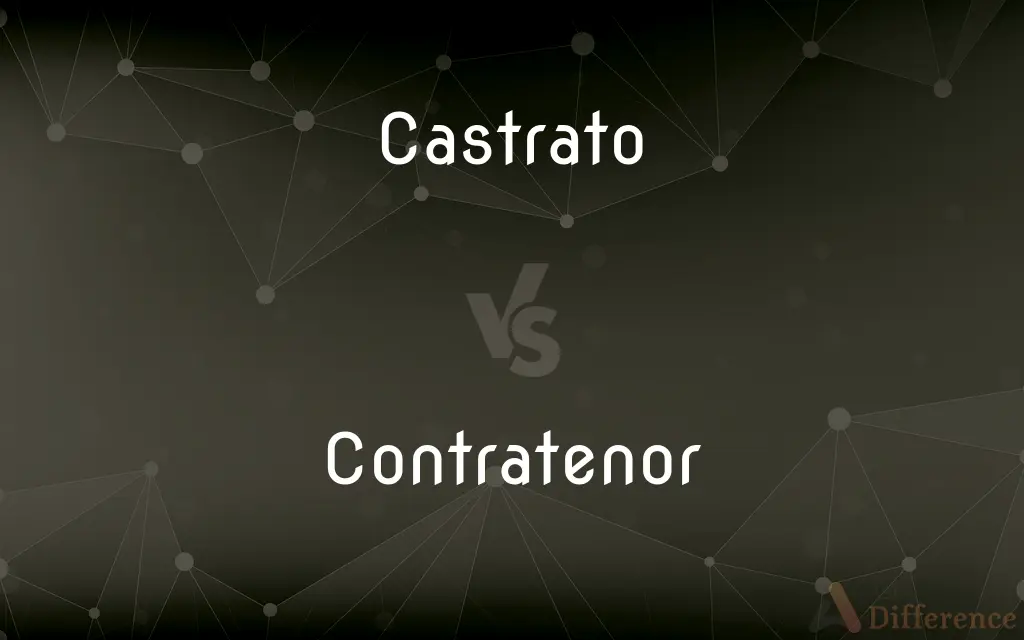Castrato vs. Contratenor — What's the Difference?

Difference Between Castrato and Contratenor
ADVERTISEMENT
Compare with Definitions
Castrato
A castrato (Italian, plural: castrati) is a type of classical male singing voice equivalent to that of a soprano, mezzo-soprano, or contralto. The voice is produced by castration of the singer before puberty, or it occurs in one who, due to an endocrinological condition, never reaches sexual maturity.
Contratenor
(music) countertenor
Castrato
A male singer castrated before puberty so as to retain a soprano or alto voice.
Contratenor
Counter tenor; contralto.
Castrato
A male who has been castrated, especially a male whose testicles have been removed before puberty in order to retain his boyish voice.
ADVERTISEMENT
Castrato
A male soprano or alto voice produced by castration of the treble singer before puberty, intended to conserve his voice; the singer.
Castrato
(literally) Castrated; especially castrated prepubescently.
Castrato
Having, using or containing the voice of a castrato (noun).
Castrato
Originally composed for a castrato.
Nowadays, either women or countertenors take the castrato roles.
Castrato
A male person castrated for the purpose of improving his voice for singing; an artificial, or male, soprano.
Castrato
A male singer who was castrated before puberty and retains a soprano or alto voice
Share Your Discovery

Previous Comparison
Demonisation vs. Demonization
Next Comparison
Bloom vs. Vigor













































